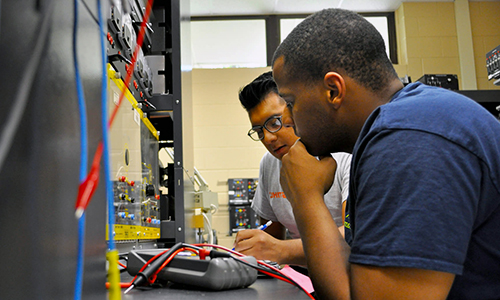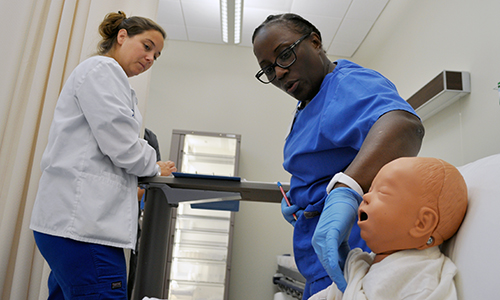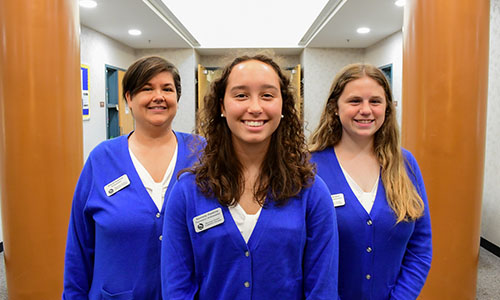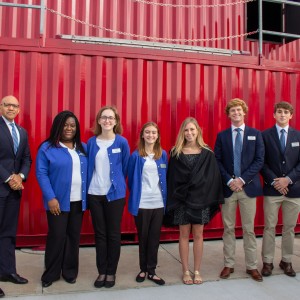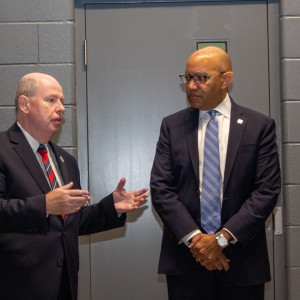
NC Community College System President Thomas Stith visits BCCC
Beaufort County Community College welcomed Thomas A. Stith III, President of the North Carolina Community College System, as he visited its campus on November 5 to tour new facilities on campus and meet with administrators about the College’s new Beaufort Promise program that offers free tuition and fees through the Spring 2023 semester. The visit was part of his tour of all 58 community colleges across North Carolina.
President Stith toured the new Public Safety Training Complex, which includes the state’s largest emergency vehicle driving pad, a fire training tower, a simulation lab for emergency medical technicians, and training emergency vehicles. The facility helps BCCC train first responders across its four-county, 2100-square-mile service area, the most expansive in the community college system.
BCCC has had great success as it returned to in-person classes and initiated its Beaufort Promise program to cover tuition and fees for students, seeing a 29 percent rise in enrollment over the previous year. The program has helped many adults return to college to finish a degree to move forward in their profession or to start in a new profession.
The College also has a new Student Success Initiative to promote critical and creative thinking, informed citizenship, and intellectual adaptability in addition to persistence, retention, graduation, completion, college transfer, and career readiness.
Thomas Stith III has served as president of the North Carolina Community College System since Jan. 11, 2021. He previously served as district director of the U.S. Small Business Administration and chief of staff to former Gov. Pat McCrory from 2013 to 2017. During his time in the Governor’s Office, he initiated the establishment of the Venture Capital Multiplier Fund (a $60 million venture fund), the Governor’s initiative on historically black colleges and universities, and Hurricane Matthew recovery.
“We have 900,000 small business in North Carolina that are already here,” said Stith. “We have a substantial business base in North Carolina now. Being able to provide that workforce for our existing businesses and industries, and those that are coming to North Carolina is going to be critical moving forward.”
His higher education experience includes five years as economic development program director at UNC-Chapel Hill’s Kenan Institute of Private Enterprise at the Kenan-Flagler Business School, from 2008 to 2013. There he focused on improving Eastern North Carolina economies, securing grant funds and managing renewable energy projects.
Stith is currently working with the General Assembly to help increase salaries for community college employees, helping to retain and recruit talent for the college system.
“We’re 41st in the country on faculty and staff salaries,” he said. “We’re the flagship community college system in the country, but we’re not competitive in the Southeast [on faculty and staff pay]. We’ve been focused this legislative session in ensuring that our voice is heard and beginning the process.”
Stith holds a bachelor’s degree in management and a Master of Business Administration in marketing from North Carolina Central University, as well as a certificate in nonprofit management from Duke University.
The mission of the North Carolina Community College System is to open the door to high-quality, accessible educational opportunities that minimize barriers to post-secondary education, maximize student success, develop a globally and multi-culturally competent workforce, and improve the lives and well-being of individuals by providing education, training and retraining for the workforce including basic skills and literacy education, occupational and pre-baccalaureate programs; support for economic development through services to and in partnership with business and industry and in collaboration with the University of North Carolina System and private colleges and universities; and services to communities and individuals which improve the quality of life.


